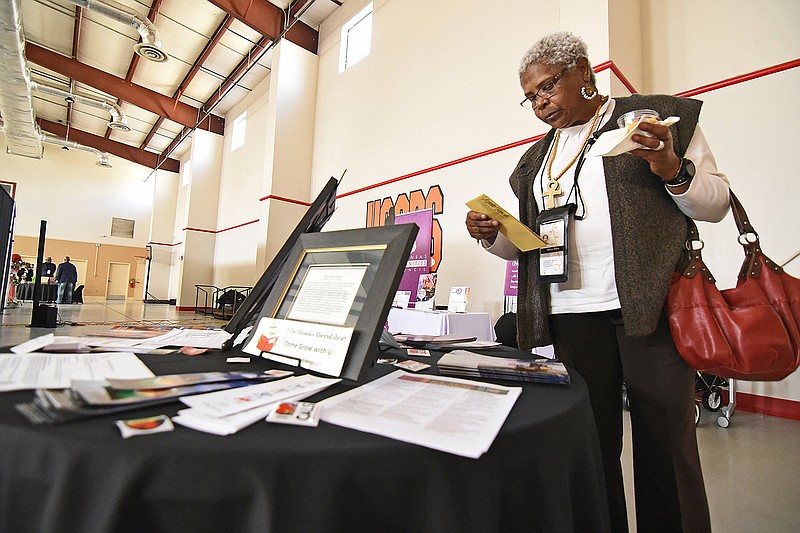Leaders from six Arkansas communities gathered Saturday and Sunday to present "The Big Reveal" -- a project designed to preserve African American history in communities along Arkansas 365.
The Preservation of African American Cemeteries launched Project 365 over a year ago through grant funding from the Arkansas Humanities Council.
Those leading Project 365 hope to use cemetery transcriptions, slave narratives, oral history, church histories and photographs to better preserve African American history in the communities of Hensley, Woodson, Wrightsville, Higgins, Sweet Home and College Station.
"There's not a lot of written history in these rural areas. Actually, there's really none at all. A collective history of the community is just not there," said Tamala Tenpenny-Lewis, president and co-founder of the cemeteries organization.
Representatives from both organizations used the two-day event to show community members a glimpse of the history they have uncovered over the past year.
"'The Big Reveal' lets [community members] see what we're doing and how they can aid us in the information we've collected by confirming whether it's correct or not and point us in the right direction."
Tenpenny-Lewis said that the project is still in the research process.
According to a news release from the Humanities Council, the goal of the project is "to trace how African Americans migrated, were born or lived in these communities" and "discuss how other African Americans can work to preserve their history."
A native of Wrightsville, Tenpenny-Lewis added: "We thought it was important to form this organization because there are so many cemeteries -- particularly in the rural South -- that are abandoned and in threat of destruction. So much of history is being lost."
Presentations throughout the weekend showcased the ongoing efforts to take collected documents and research and use them to tie together a better understanding of the communities' history.
The weekend event ended Sunday afternoon with a luncheon hosted for elders from each of the six communities that have played a role in contributing to the ongoing research and interviews for the project.
Ruth Hill, 93, said, "In your past, there is somebody who has been outstanding. People are fascinated by it."
Hill, a resident of Wrightsville for over 70 years, also said she thinks efforts like Project 365 are crucial because it encourages younger people to get involved in learning and preserving the history that exists in their communities.
The two-day presentation on "How cemeteries reveal the history of early Black communities" was hosted in the Wrightsville City Hall Gymnasium.
"We're asking in every way that we can for them to bring documentation, photographs [or] any information they have on their families, so we can help them tie it all together," Tenpenny-Lewis said. "We just want people to be aware of what we're doing."
Those interested in getting involved with the efforts of Project 365 can visit the Preservation of African American Cemeteries Inc. on Facebook.
